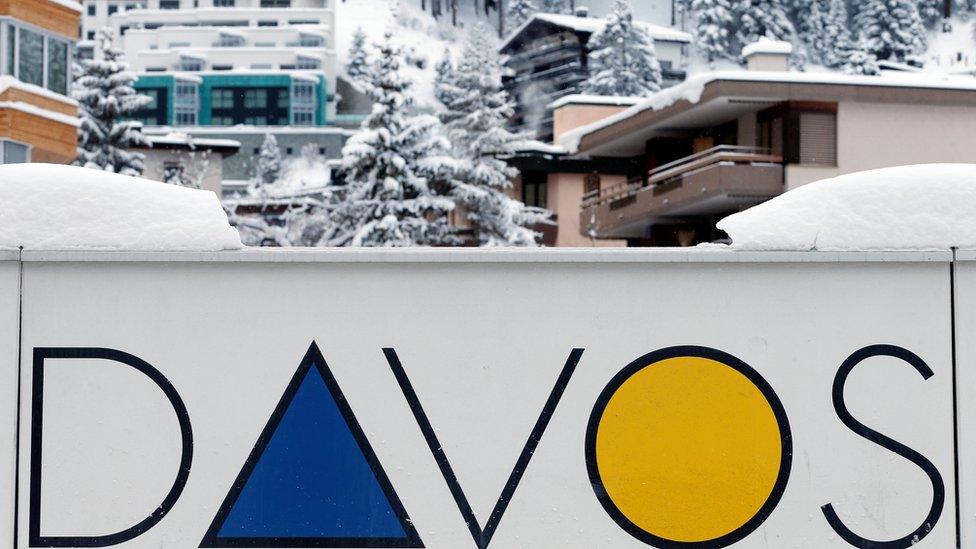May's 'positive discussion' with banks
- Published
Prime Minister Theresa May: "I've had a very good, positive discussion with banks"
Prime Minister Theresa May has had "positive discussion" with big banks about how they might be encouraged to keep jobs in the City of London.
They talked about what had attracted them to London and "how we can continue to build on that for the future," Mrs May told the BBC's economics editor Kamal Ahmed, in Davos.
Her remarks came as several big banks said they may move staff out of London.
Both HSBC and UBS have said they could relocate about 1,000 jobs.
Mrs May was asked if she was disappointed that it was becoming clear that there was a price to Brexit.
"I want to negotiate a free trade agreement with the European Union which will give us the maximum access, the right deal for Britain, maximum access to the single European market for trading with and operating within that market for both goods and services," she said.
"I think that's not just in the interests of the UK, I think that's in the interests of the European Union as well," she added.
May: UK will lead world on free trade
What did Davos make of May's speech?
Mrs May said she had had a "very good positive discussion with banks about the benefits of the City of London, about what it is that has brought them to the City of London and how we can continue to build on that for the future".
There were "huge benefits" for investment in the UK, Mrs May added, which she said had a "fundamentally very strong economy".
She said the service sector was very important to the UK and that she believed that "truly global Britain can bring jobs and prosperity to the UK across the board, including in financial services".
Privileged access?
Mrs May was asked if the government might be prepared to give preferential treatment to EU immigrants coming to the UK in exchange for privileged access to the single market.
People who voted for Brexit were voting for "us to take control of our immigration laws for people coming from the EU into the UK", she said.
"We're looking at the various systems that are possible at the moment. The key issue for people in the UK is that we have control, that's it's the government that is deciding our immigration rules," she added.
'Difficult'
Earlier, Mrs May told leaders at the World Economic Forum in Davos that the UK will be a "world leader" on trade.
But the prime minister also warned that inequality blamed on globalisation was aiding the "politics of division".
Her speech to business leaders and politicians in Switzerland came after EU leaders said a post-Brexit trade deal with the UK would be "difficult".
The prime minister promised that the UK after Brexit would take on a "leadership role as the strongest and most forceful advocate for free markets and free trade anywhere in the world".
Globalisation
She argued for reforms so the global economy created wealth for all, rather than a "privileged few", and "centre-ground mainstream politics" could "work for everyone".
Mrs May said the world was enjoying an "unprecedented level of wealth", but many people felt this was "not working for them".
Global elites needed to tackle the backlash against globalisation, liberalism, and free trade because leaders who "embrace the politics of division and despair" were working to exploit the situation.
Mrs May said: "Talk of greater globalisation can make people fearful. For many it means their jobs outsourced and their wages undercut. It means having to sit back as they watch their communities change around them.
"And in their minds, it means watching as those who prosper seem to play by a different set of rules, while for many life remains a struggle as they get by, but don't necessarily get on."
- Published19 January 2017
- Published19 January 2017
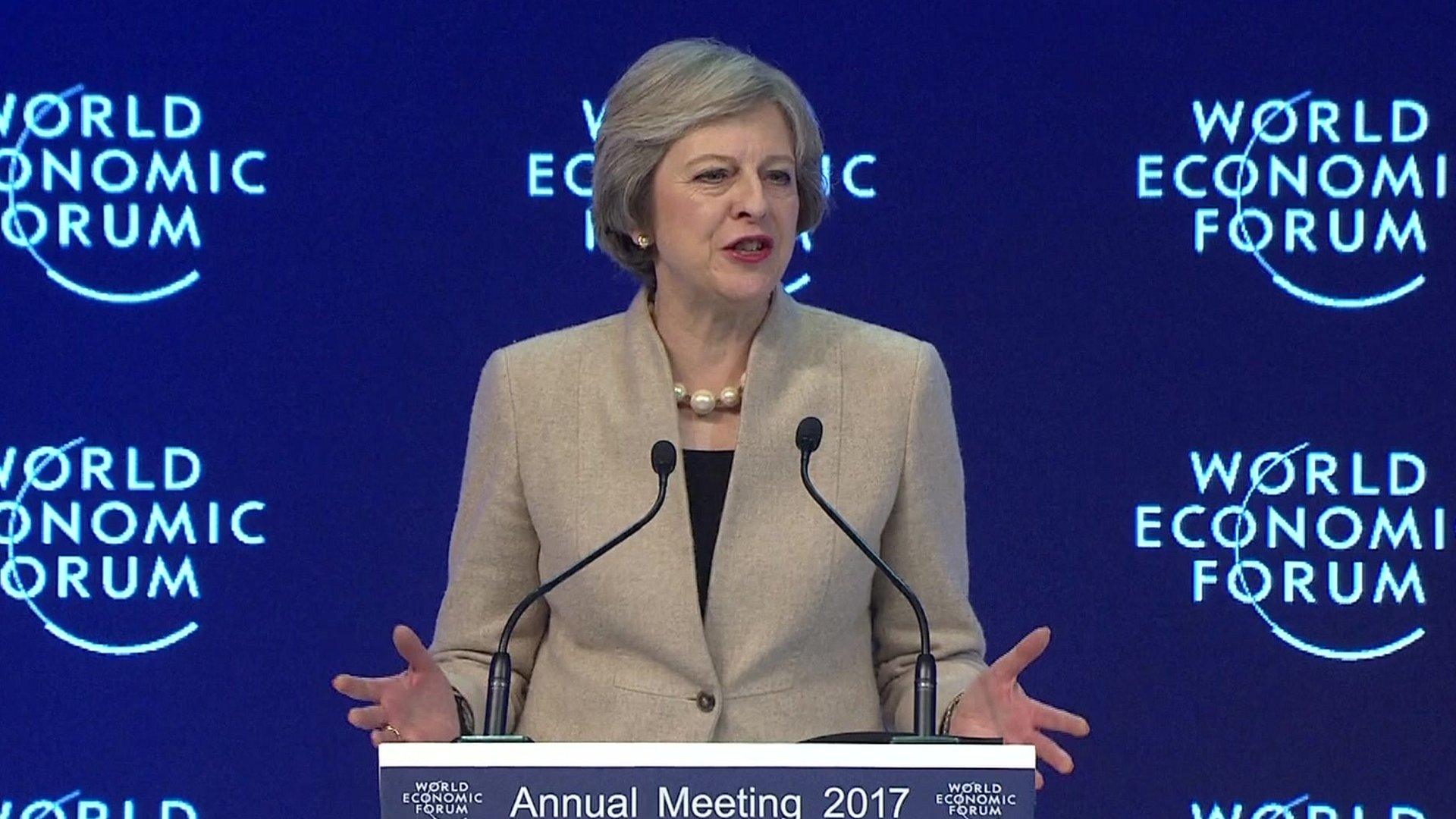
- Published19 January 2017
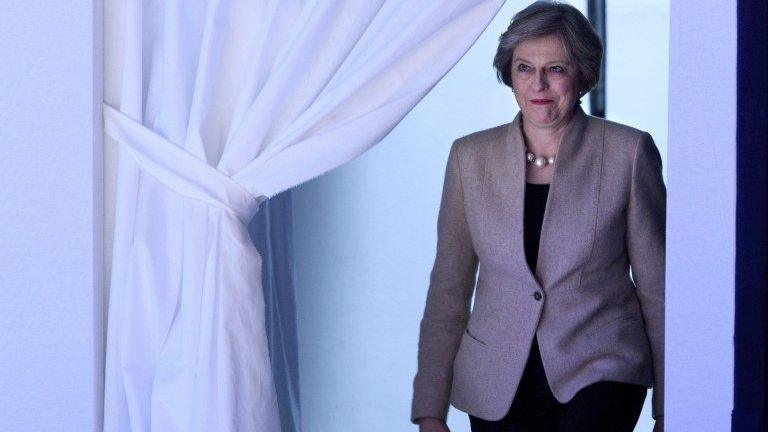
- Published16 January 2017

- Published19 January 2017
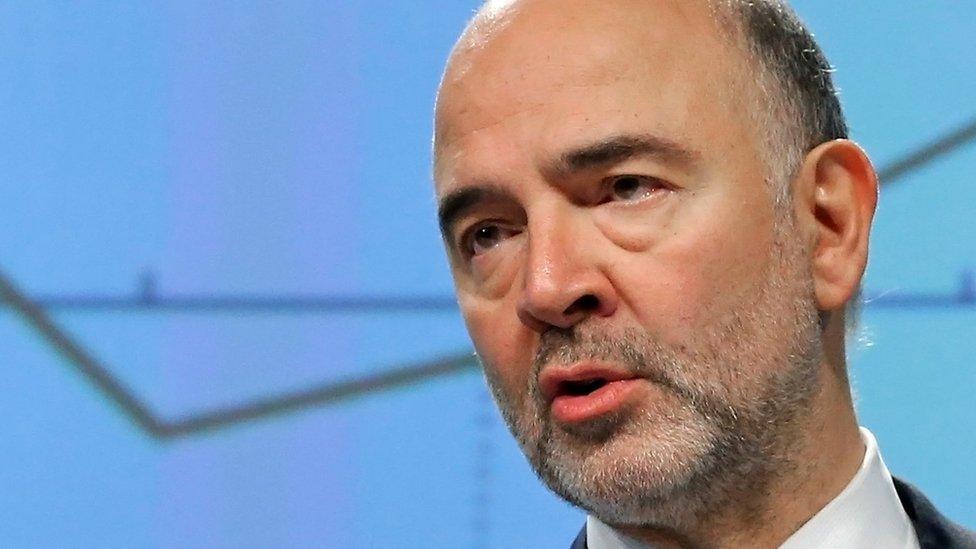
- Published18 January 2017
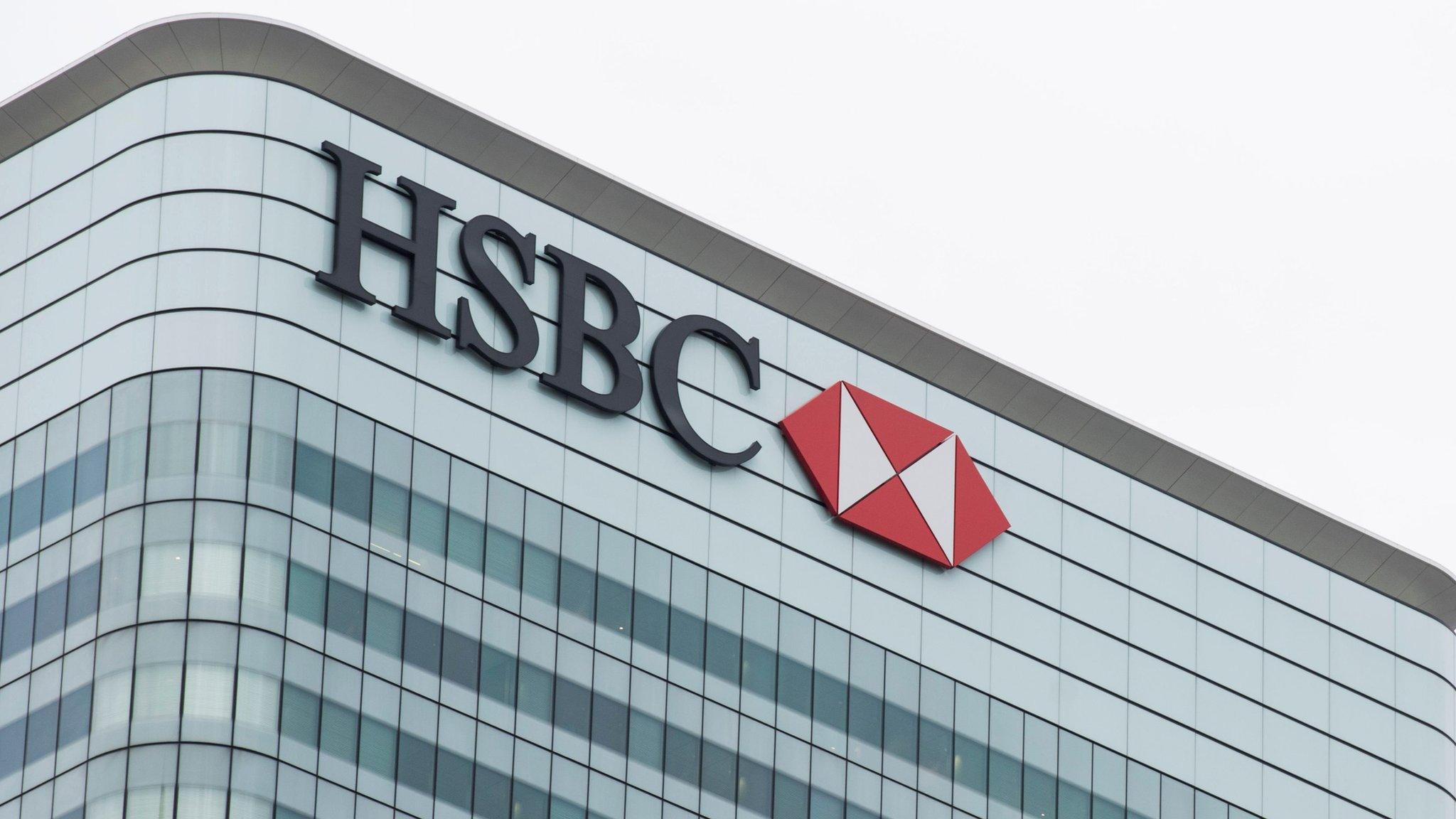
- Published18 January 2017
- Published16 January 2017
